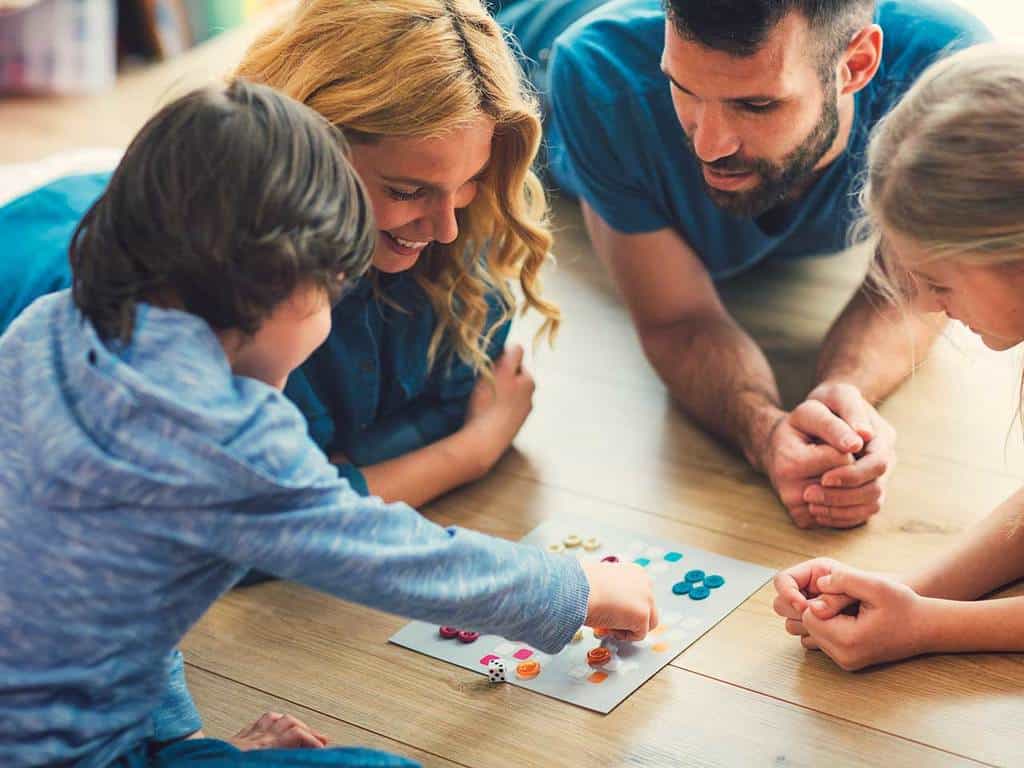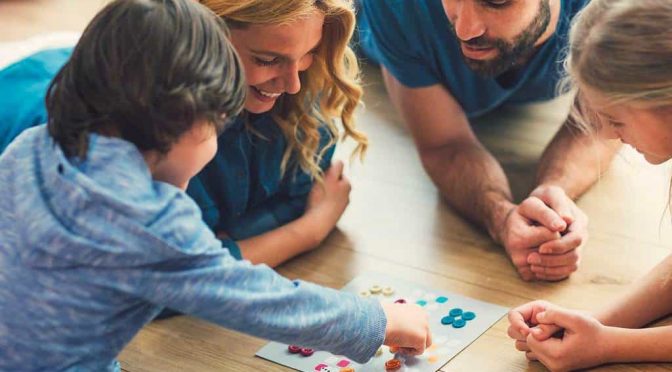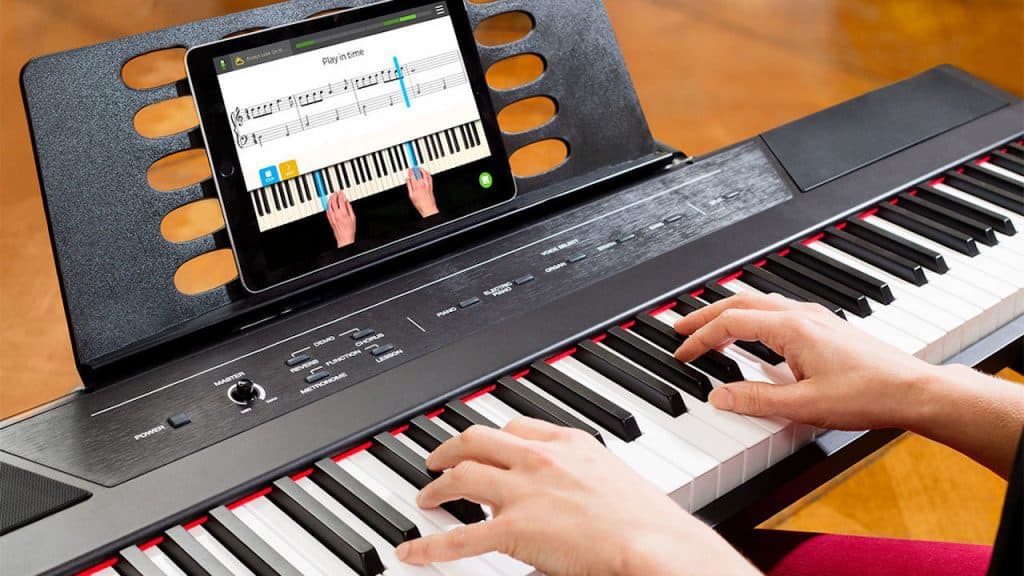Piano Blog by Skoove – Piano Practice Tips
Learning to play piano is the ultimate video game. Think about it for a moment. You are the main character. You start at the beginning of an epic journey, with limited skills and resources. Your character is not very agile and does not know very much of the possibilities of the world.
As you practice, and encounter more of the world of music, your skills develop more and more. Then you come to the first boss of the first level. Maybe that means a challenging piece, a difficult scale, or your first performance. You win the level and you walk away feeling confident and empowered in your new abilities and excited to continue your journey through music.
Taking this game-like approach to learning music will make your practice time much more exciting and relatable. If you are a parent, you can impress this sort of mythological aspect of the journey-game onto your kids and it will empower them to see the connections between the games they enjoy and their own lives!
Speaking of games, Skoove Premium offers many fun and interactive ways to get your children engaging with music quickly! With hundreds of piano lessons for kids that are designed to be both challenging and fun, Skoove is a simple way to bring a little music into your family’s life. Check it out if you are interested and see how much fun it is to learn piano!
Fun digital games for piano learning
Functional ear trainer
Digital technology is great for learning music. The simplicity of a phone app has opened doors to practice many specific aspects of music in a convenient setting. One example of this is the app Function Ear Trainer available from Google and Apple. The Functional Ear Trainer is a fun game that helps build ear training skills. By starting small, the app progressively builds your skills until you can identify almost any note. The skill of functional ear training means that you will learn how to hear pitches as they relate to functional situations, which is extremely beneficial if you actually wish to use your skills for anything! This is a great tool to use in conjunction with beginner piano lessons and is an effective way to incorporate a little taste of gameplay into your piano practice.
Synesthesia
Have you heard of synesthesia before? Synesthesia is the experience of seeing particular colors in association with sounds. Many great composers have experienced synesthesia as well as regular people with no particular interest in composing. However, there is a great game on YouTube now called Synesthesia. These games have taken a cue from the popular video game “Guitar Hero” and turned piano practice into a fun and interactive activity that is simultaneously extremely beneficial for learning to play piano! Skoove has elements similar to this in its lessons. Essentially you watch the notes descend from the top of the screen to where they hit the piano keys and you match those notes with your fingers. Easy and fun!
Chrome music lab
Chrome Music Lab is a free and openly accessible project from Google that “makes learning music more accessible through fun, hands-on experiments.” Chrome Music Lab currently contains 14 games, or experiments as they are called, designed to unleash creativity in various regions of the musical universe. For example, there are games on composing chord progressions and melodies, learning to identify rhythms, examining and understanding different sound waves and oscillators, and understanding how a MIDI piano roll works. Sounds like a lot of fun!
Analog games for learning piano
Certainly, you don’t always have access to digital devices when you are practicing piano. Or, maybe having your phone nearby is too much of a distraction and you end up scrolling through the internet instead of practicing. So here are a few ideas for piano games you can play without a digital device.
Play the name game
How many letters are in the musical alphabet? There are seven letters in the musical alphabet: A – B – C – D – E – F – G. How many words can you spell with those letters? Start brainstorming!

Spend a few minutes and write down as many words as you can with these seven letters. Then, try to practice spelling these words with the notes on the keyboard! This is a great practice tool especially for the younger students who are just learning to spell. Once you feel comfortable with spelling out individual words, see if you can link them together into sentences. If you can do that, then try to build a story out of them! The only limit here is your imagination.
The basket of golden eggs
How many tasks create a cohesive piano practice time? Maybe a warm up, a scale practice, some improvisation, a little ear training, and a couple passes through a song or two? That should equal about 25 or 30 minutes of practice time.
Write down these tasks on small pieces of paper and stick them inside of plastic eggs. They don’t have to be golden, but it makes it more fun if they are. You can duplicate a few of the tasks if you wish. Place these eggs inside a basket or bucket or any similar container and have your child choose one egg at a time and see what the task is inside of it. You could even place a small piece of chocolate or some similar incentive inside one the eggs for them to find. This is a fun and effective piano game for kids.
Train your ears with the radio
If you don’t have access to a device for an ear training game, no problem! Turn on the radio to your favorite station and see if you can play along! Don’t worry about getting everything right. Start at the beginning. Can you sound out the key of the song? That will be the note that sounds most “at home” with all the chord changes. This should be fairly simple with most pop radio music. Once you have found the key, try to pick out some of the bass notes.
The bass generally has the most easily recognizable movement in pop music because it most often plays the roots of the chord changes. Once you can pick out the bass notes, try to move on to the chords. The chords may pose a more significant challenge than the bass notes because you will deal with major and minor chords and possibly some others.

The great thing about practicing this game with the radio is that you can not stop and rewind the music. Your only choice is to keep going, which forces you to adopt a detached approach to the game and purely focus on how you can improve going forward instead of revising what you did previously. This piano game is not for everyone but is a great way to practice and listen to music at the same time.
Don’t forget! The game is to “play”
It can be easy once you start to get into a routine with music practice to forget that the “goal” of practicing piano is to actually “play” music, whether that is alone by yourself or with friends and family, or on a stage in front of hundreds or thousands of people! If you can keep that element of “play” in your mind at all times, you will progress faster, have more fun, and reap more of the benefits of playing piano than if you get bogged down in the negative drudgery of overwhelming self-criticism. Obviously, sometimes it is easier to do this than others and many external factors influence our mood and desire to play music at all. But, hopefully, this list shines some light on that crucial element of play that we should all be striving to incorporate into our piano practice as often as possible!
Try out your free trial of Skoove today!
Author of this blog post

Eddie Bond is a multi-instrumentalist performer, composer, and music instructor currently based in Seattle, Washington USA. He has performed extensively in the US, Canada, Argentina, and China, released over 40 albums, and has over a decade experience working with music students of all ages and ability levels.
Read More
This article is from an external source and may contain external links not controlled by Empeda Music.


